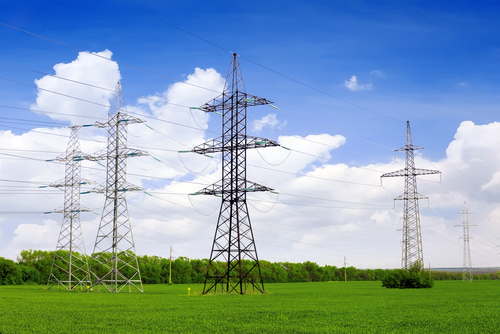The essence of a product or service is to offer ultimate satisfaction to the consumer. Consumers always demand consistent satisfaction for any product they purchase. The right to be satisfied with the quality of services or product offered to a consumer remains sacrosanct.
The demand for electricity remains high on the priority lists of Nigerian consumers. The penetration of internet services has also increased the electricity demand of Nigerian consumers. The rise of the middle class has also increased the demand for electricity as consumers now purchase gadgets that run on electricity. Also, the population of Nigeria is on the rise. With these increases, one will ordinarily expect that Distribution Companies will improve the quality of care offered to consumers. On the other hand, there are still lots of challenges begging to be addressed.
The NERC being the sector regulator has a lot of work to do in ensuring efficiency of the sector. Achieving this success isn’t beyond the capabilities of the NERC. In our quest to uncovering the challenges of consumers in the electricity sector, save the consumers carried out a concise survey to determine the state of electricity in Nigeria via the consumers’ perspective. Through this survey, we were able to measure the level of consumer understanding in relationship to products and services offered by distribution companies.
From a recent survey carried out to identify the percentage of electricity consumers who are aware of the Multi Year Tariff Order (MYTO II) 2016, 1,200 respondents were surveyed for this purpose. 200 respondents were interviewed from each geo political zone. From the survey, only 27% of the surveyed population could tell the actual cost per kilowatt of electricity consumed. From the survey, majority of those who knew or had ideas of the tariff billing system were between the ages of 45 and above, who were mostly men.
Women who on the average spend more time at home using electricity didn't show an encouraging understanding of the tariff pricing structure. Out of the surveyed population only about 6% of women had an idea of how the electricity tariff system works.
From the surveyed population, only 8% of consumers within the ages of 25 to 45 had an Idea of the electricity tariff billing system.
From the surveyed population, about 57% were on estimated billing system. Only 2.5% of this population had a concrete idea of (MYTO 11) billing system.
The consumers in Lagos (Ikeja axis), Abuja (Lugbe axis, kubwa axis) who are on estimated billing platforms, complained of very high tariff. 78% of these individuals (Ikeja, lugbe, Garki) stated that they will be pleased to know how the estimated billings work. Also, they stated that a system should be put in place to reduce the estimated bills when there is no power supply.
69% of the total surveyed population stated that a lot of work needs to be done in power distribution. 63% stated that they wanted to see better customer service experiences from the various distribution companies.
Those on estimated billings were clearly not pleased with the huge bills doled out to them on a monthly basis. 85% of those on estimated billing platforms stated they wanted to have their meters installed in their houses. From the survey, It shows that a very high percentage of consumers do not trust the estimated billing system. 71.7% of those on estimated billing systems, stated that they reluctantly paid the high bills without understanding how it was accumulated.
From the estimated billing system, it is clear that consumers are not pleased with it as it erodes their trust in the distribution company. Consumers want to be in control of their expenditure. If the meters will be made available and better services as well as vital information offered consistently, consumers will be pleased. The distribution companies should have a central telephone and email data base of their consumers through which vital information can be disseminated.
The distribution company's as they work day in day out to standardize their operation, they should also bear it in mind that the real power lies with the consumer. Enhancing the quality of services to consumers is paramount. Officers found to have overestimated bills for consumers should be disciplined and the excess charges returned to the consumer.
The distribution companies should equally engage communities to work together in ensuring better supply and management of electricity. Through the community engagement, consumers will be educated about their rights and responsibilities. This relationship system will enable the distribution company's in gathering vital information.
The NERC Has the major role to play in ensuring that the quality of services offered to consumers by power Distribution Companies meets all the requirements stated.
At this point, we want to call on NERC to consistently engage and create an enabling environment that will promote fair trade practices amongst players in the electricity sector. Also, we urge NERC to stimulate players in the electricity sector to consistently innovate their services, prevent monopolistic tendencies from Distribution Companies or any form of collision aimed at charging higher tariffs.
As NERC relates with industry players, a platform for interacting with the consumers is key. Consumers have the right to be heard, to seek redress as well as to information, having a well packaged consumer forum will empower consumers to speak out about their plights.
When there is community engagement in electricity management, companies will have to re strategize their services and processes to align with the demands of consumers. At save the consumers we want to encourage NERC to keep up with the good work of ensuring electricity for all.

